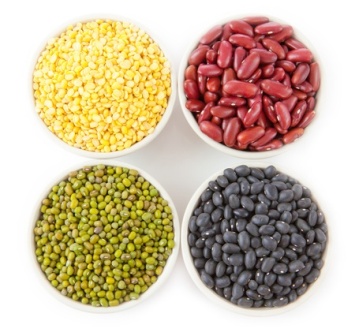What is Bloating?
Pregnancy is a beautiful time in a woman’s life but it comes with some irritating pregnancy symptoms like gas and bloating. These symptoms begin to make their appearance in the first trimester itself even before you begin to show. The major reason being the pregnancy hormone-progesterone. Feeling bloated with clothes slightly tight at the waist is one of the early signs of pregnancy and can be noticed soon after your pregnancy test comes positive.
What Causes Bloating?

Normally the food moves from the stomach to the intestines and is broken down by the bacteria which leads to minimal gas formation. During pregnancy, the progesterone hormone tends to slow down the digestion process by relaxing the smooth muscles of the gut. Thus, the food takes longer to reach the intestines giving the gut bacteria more time to act on it, the resultant effect is gas formation, one of the very initial signs of pregnancy.
During pregnancy, your uterus is growing each day to accommodate your rapidly growing fetus. It puts pressure on the rectum which lies behind it leading to poor control and you tend to pass more wind.
As you enter the second trimester of pregnancy, the growing uterus moves out of the pelvic cavity and pushes the abdominal organs upwards. This adds to your gassy woes in the form of acidity and heartburn. Overall, you feel uncomfortable and bloated along with your gradually increasing pregnant belly size.
The good news is that you can tackle all that gas with some simple lifestyle modifications and all these early pregnancy symptoms will disappear as soon as your baby is born.
Signs and Symptoms of Bloating
The range of early pregnancy signs will vary in each pregnant woman. However, here are a few common signs and symptoms to look out for:
- Uneasiness and discomfort felt around the abdomen
- Burping and belching
- Heartburn and acidity
- Flatulence
- Abdomen pain relieved by passing flatus
- Loss of appetite
- Tight or snug fitting clothes at the waist.
How to Get Rid of Bloating During Pregnancy?
The diagnosis of bloating during pregnancy is done on the basis of history and symptoms narrated. Most of the cases can be managed well with dietary and lifestyle modifications. In case the symptoms are severe, antacid or PPIs may be prescribed by your caretaker. Take care of the following do’s and don’ts to keep gastric troubles or bloated stomach at bay during pregnancy:

Dietary Changes
- If you are experiencing gas troubles, it is best to avoid farinaceous foods (gas forming foods) like cabbage, cauliflower, sprouts, pulses like beans, chick peas etc
- Sodas and other sweet aerated drinks also contribute to bloating and are empty calories without any health benefits. These are best avoided.
- Wheat bran is found to be very effective in treating constipation and also reducing gas. Add it to your regular whole wheat flour and use it on a regular basis.
- Avoid deep fried and rich foods as they will exaggerate acidity and also take longer to get digested.

Lifestyle Modifications
- Do not drink lots of water with your meals. It will make you end up feeling full and bloated. Have small sips of water.
- Sit up and eat your meals.
- Do not have large meal portions. Small frequent meals at an interval of 3-4 hours are more effective in maintaining your sugar levels and keeping indigestion at bay.
- Do not take tea or coffee on an empty stomach. Have crackers or snacks with it.
- Treat constipation to avoid gas formation. Have a fiber rich diet with lots of green vegetables. Consult your doctor and take Psyllium / Isopghula husk with milk or water daily at night. It is very effective in treating constipation.
- Eat slowly and chew your food well. Relax and treat meal times with importance. Avoid catching on the go foods like burgers and eating while travelling or walking. Inhaling too much air while eating also tends to cause gas.
- Do not take any over the counter medications during pregnancy without consulting your doctor
- Follow a light to moderate exercise routine. Brisk walking for 30 minutes will help you digest your food much better.
- Try yoga or relaxation therapy.
Lastly a word of caution – If you experience symptoms of stomach bloating and gas accompanied with bleeding or loose stools, fever etc may indicate an infection. Visit your doctor immediately and do not try any home remedies.

